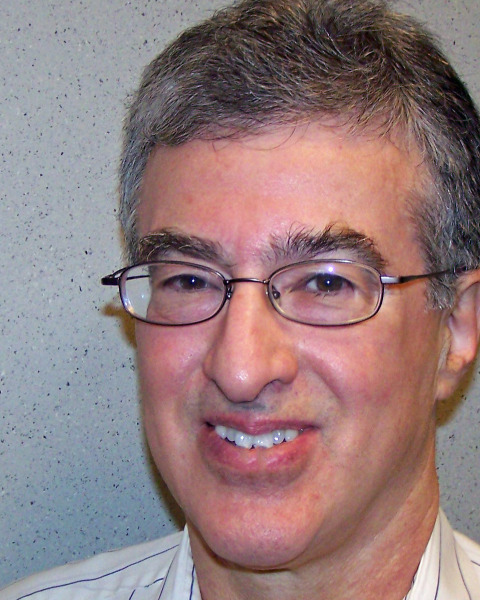Pain Management in PALTC: An Updated and Improved Clinical Practice Guideline
1.00 CME / 1.00 CMD Clinical / 1.00 MOC
This session will describe the revised Pain Management in Post-Acute and Long-Term Care Clinical Practice Guideline (CPG), which provides solutions to commonly asked questions and hyperlinks to additional information available online. Speakers will address current clinical issues around assessment and diagnosis of pain, challenges related to treatment and evidence-based treatment options, and discuss issues around the use of opioid analgesics and the regulatory and survey considerations in pain management. The diagnosis and management of different types of pain will be delineated as per the CPG and management of these areas and ongoing documentation reviewed. Participants will have access to the full CPG and associated links.
Presenters
 Steven Levenson MD, CMD, has been a medical director and physician in long term and post acute care for 43 years. He is widely recognized for his pioneering work in medical direction and efforts to improve long-term care and expand its body of knowledge. He has authored or co-authored more than 80 articles and four books, including Medical Direction in Long-term Care and the Subacute and Transitional Care Handbook. Over the past 30 years, he has been involved extensively in activities to improve the implementation of the OBRA ‘87 regulations and guidance. Dr. Levenson is a Past President of the American Medical Directors Association (AMDA), 2006-2007 and has contributed substantially to numerous AMDA projects, programs, and publications for the past 35 years.
Steven Levenson MD, CMD, has been a medical director and physician in long term and post acute care for 43 years. He is widely recognized for his pioneering work in medical direction and efforts to improve long-term care and expand its body of knowledge. He has authored or co-authored more than 80 articles and four books, including Medical Direction in Long-term Care and the Subacute and Transitional Care Handbook. Over the past 30 years, he has been involved extensively in activities to improve the implementation of the OBRA ‘87 regulations and guidance. Dr. Levenson is a Past President of the American Medical Directors Association (AMDA), 2006-2007 and has contributed substantially to numerous AMDA projects, programs, and publications for the past 35 years.
 Barbara Resnick, PhD, CRNP, is a Professor in the Department of Organizational Systems and Adult Health at the University of Maryland School of Nursing, co-directs the Biology and Behavior Across the Lifespan Research Center of Excellence, holds the Sonya Ziporkin Gershowitz Chair in Gerontology, and does clinical work at Roland Park Place.
Barbara Resnick, PhD, CRNP, is a Professor in the Department of Organizational Systems and Adult Health at the University of Maryland School of Nursing, co-directs the Biology and Behavior Across the Lifespan Research Center of Excellence, holds the Sonya Ziporkin Gershowitz Chair in Gerontology, and does clinical work at Roland Park Place.
Learning Objectives
- Identify common challenges in managing pain in the PALTC population.
- Describe the systems and processes that a facility needs to support effective pain management.
- Discuss indications, specific considerations, and challenges related to opioid analgesics.
- Discuss how facilities and practitioners can prevent survey issues related to pain assessment and management.
Credit Information
Activity Created 3/2022
Credits Available Until 3/2025
Credit Statements:
CME: AMDA – The Society for Post-Acute and Long-Term Care Medicine designates this enduring material for a maximum of 1.0 AMA PRA Category 1 Credit(s)TM. Physicians should only claim credit commensurate with the extent of their participation in the activity.
AMDA – The Society for Post-Acute and Long-Term Care Medicine for Post-Acute and Long-Term Care Medicine is accredited by the Accreditation Council for Continuing Medical Education (ACCME) to provide continuing medical education for physicians.
CMD: This self-study activity has been pre-approved by the American Board of Post-Acute and Long-Term Care Medicine (ABPLM) for a total of 1.0 clinical hours toward certification or recertification as a Certified Medical Director (CMD) in post-acute and long-term care medicine. The CMD program is administered by the ABPLM. Each physician should claim only those hours of credit actually spent on the activity.
ABIM Maintenance of Certification (MOC): Successful completion of this CME activity, which includes participation in the evaluation component, enables the participant to earn up to 1.0 Medical Knowledge MOC points and patient safety credit in the American Board of Internal Medicine’s (ABIM) Maintenance of Certification (MOC) program.
Participants will earn MOC points equivalent to the amount of CME credits claimed for the activity. It is the CME activity provider’s responsibility to submit participant completion information to ACCME for the purpose of granting ABIM MOC credit.
Visit the Continuing Education page for information on if and how you can claim credit/hours for AMDA’s education.
Disclosure Information:
The Society requires the disclosure of all speaker/faculty/planner’s relevant financial relationships; presence of off-label use of a device or medication; and discussion of any experimental, new or evolving topic prior to each accredited education activity.
If the learner perceives any bias toward a commercial product or service, advocation of unscientific approaches to diagnosis or therapy, or recommendation, treatment, or manners of practicing healthcare that are determined to have risks or dangers that outweigh the benefits or are known to be ineffective in the treatment of patients please report this to the Society’s staff.
All relevant financial relationships have been identified, mitigated, and resolved.
- The following AMDA Education Committee members have financial relationships to report: Diane Sanders-Cepeda, DO, CMD — UHC E&I Retiree Solutions: Full-Time Employee; all others have no relationships with ineligible companies.
- The speakers have no relevant financial relationships.
- AMDA staff have no relationships with ineligible companies.